- Home
- Alice Hoffman
Local Girls Page 6
Local Girls Read online
Page 6
Delighted to be in Jill’s perfect kitchen, I went to the snack drawer, where her mom always had brownies and cookies. It was pure chance that I happened to look up to see Jill standing in front of the open refrigerator. They must have had liver the night before at supper, because that was what she was reaching for. I felt a chill on the back of my legs. Jill usually wept to think of lambs and calves led to slaughter. She had to close her eyes whenever I ordered a hamburger, rare.
“You’re eating that?” I asked.
“This?” Jill looked at the liver as though she’d been hypnotized and was just now surfacing to consciousness. She’d already taken a bite though, and was forced to chew and then swallow.
“Are you all right?”
“I guess I felt faint,” Jill admitted. “I thought it would help to have some protein.” She sat down at the table and I brought her a knife and fork. She ate the liver and tears rolled down her face. Slaughtered calves no longer mattered to her. That’s when I knew.
“No,” I said. “Tell me you’re not.”
“I am.” Jill nodded her beautiful head and kept on crying.
This was bad news indeed. Her boyfriend, Eddie LoPacca, was the boy that everyone wanted, but not for keeps. He Was gorgeous and stupid, and for two years straight I’d written all his term papers, so I certainly knew the state of his mind. Blank as the pages in his notebook. Even my brother, Jason—who was actively screwing up his own life with Eddie’s sister, Terry, as his constant companion—would come home from the LoPaccas’ house shaking his head.
“That Eddie,” he’d say. “No one’s yet informed him that the earth is round. He thinks Abraham Lincoln is a brand of toothpaste. If you watch him closely you can actually see steam coming out of his ears when he tries to concentrate.”
We had some good laughs at Eddie’s expense, but when I really thought it over, I always felt sobered by the hand of fate. My brother was the one who was supposed to be such a genius, but he and Eddie were now both employed in the same deli department, so who was the real idiot? Fate could twist you around and around, if you weren’t careful. Just when you thought you knew where you were headed, you’d wind up in the opposite direction or flattened against a wall.
All the same, Jill was my best friend and I wanted to help. At that point I still believed that I knew as much as most people, and more than many. That afternoon, I went home and called my cousin Margot out to the patio, where we could speak privately. She and my mother had been experimenting with napoleons and éclairs and there was bitter-sweet chocolate streaked along Margot’s arms. They had a wedding on Sunday that was driving them crazy.
“I told your mother we shouldn’t do weddings.” Margot was supposed to have stopped smoking, but occasionally she had a Salem, during times of stress. She was having one now. “A bar mitzvah, a party, they’re something else completely. At weddings people are so on edge. They can see their lives passing before their eyes. They’re shutting the gate, they’re locking it twice, and they turn all their anxiety into complaining about the catering. ‘You call this coffee? You call this cake?’ That’s what we’ll be hearing. Believe me.”
My mother was busy rolling out dough, so Margot let me take a puff of her Salem. I thought about the way my father had dragged out leaving us. For two years my parents fought day and night, like pit bulls trapped in an L-shaped living room, but Margot’s husband had vacated in a totally different style. He took off in the middle of the night; he didn’t even bother to pack a suitcase, he just got into their Ford Mustang and headed south. Margot eventually got the Mustang back, but ever since her marriage had broken up, her mouth had a funny look to it, as though someone had grabbed her by the lips and yanked, hard.
When I asked her what she would do if she wanted to get rid of a baby, Margot’s mouth looked even more pinched than usual. She pointed her Salem at me. “You?”
“A friend,” I said.
“Sure, sure.” Margot shook her head sadly. “That’s what they all say.”
There were actually tears in her eyes. To be honest, I felt flattered. I could hardly get a boy to look at me. All right, they’d look, they’d even take me out, but no one asked me for a second date. I was too nasty, a real wise guy, and all the boys could tell what was beneath my rotten disposition. Down deep, I wanted a commitment with a capital C. To get anywhere with me, a boy would have to sign his undying loyalty with his own blood.
“I swear,” I told Margot. “It’s for a friend.”
Later, while my mother was boxing up the pastries, Margot gave me an address in New Jersey. She scribbled down all the information, dotting her i’s with little hearts.
“I hope your friend has money. It costs three hundred bucks.” Margot was getting her coat on, a soft camel’s hair I greatly admired. She didn’t believe in girls getting rid of babies, but then again, she didn’t believe in women working either and here she was with no husband and her own business. “I could lend you the cash,” she said.
“It’s not for me,” I insisted.
Margot took my face in her hands and looked into my eyes. “Swear to me on your father’s grave you’re not pregnant.”
My father was living in a huge Tudor house in Great Neck, but I swore on his grave anyway and Margot must have believed me because she kissed me on both cheeks.
“Good girl,” she said, which, to my ears, sounded something like a curse.
That evening, my brother came home from the Food Star with salami and a bucket of coleslaw. He did this most nights; my mother, after all, was too busy catering to fix dinner, and that evening she actually had a date. Her first. I sat on her bed, ate a sandwich, and helped pick outfits—her black dress was too reminiscent of mourning; the red skirt was too extreme. Finally, we settled on a pale blue suit and a cream-colored blouse.
“I must be crazy,” my mother said as she viewed herself in the full-length mirror. Margot had arranged this blind date, so my mother probably had reason to worry, especially since the guy was the ex-husband of Margot’s next-door neighbor. But desperate times called for desperate measures, and the man in question walked, talked, and breathed—what more could you ask for?
“Well, you look great,” I told my mother, which was really the truth. Her hair was short and bouncy, and you’d never guess what she’d been through, how all summer she’d been so weak she could hardly get out of bed. When she left, I went into the kitchen to fix another sandwich, but Jason had eaten all the salami, so I stole two of the éclairs from the box in the fridge. Unfortunately, the cream inside tasted like glue.
“What would you do if Terry got pregnant?” I asked my brother when he came into the room. I thought I was making idle conversation until I could go over and give Jill the address in New Jersey, but Jason went nuts. He accused me of spreading rumors, of listening to gossip and butting into his business.
“It was a hypothetical question,” I informed Jason when he had stopped shouting and sat down across from me. “Or so I thought.”
Jason was wearing a white shirt and had forgotten to remove his Food Star name tag. He’d won every science award in the county, but here he was, sitting across from me in our kitchen, which still smelled like chocolate and flour.
“Terry is driving me crazy,” my brother said. “All she wants is a commitment.”
I understood. The capital C. The signature in blood. As if it meant anything. As if it ever could. As if fate couldn’t rattle and roll you however and whenever it pleased.
Before I went over to Jill’s, I cleaned our kitchen. I used steel wool on the stove and mopped the floor twice. I scoured the sink, but it was pretty scratched up from those huge vats my mother and Margot had been using for Swedish meatballs.
“What have you been doing?” Jill asked me when I got to her house. “You have dishpan hands.”
She’d been waiting for me out on the front porch, and once I arrived we headed to the schoolyard, two blocks away, where we always went to talk.
“
When I live alone I’ll only use paper plates,” I said.
“I want white china,” Jill told me. “Pure white with a gold band along the edge.”
Spring was coming more slowly than usual that year; the forsythia came to bud, but waited to bloom. I thought of my mother, out on her date. I knew why she insisted on catering weddings. My mother still believed in true love. At this very instant, she was sitting across from a stranger in a rear booth of the steak house on the turnpike, wondering if it was happening to her right then and there. Was she falling for him as they ordered their salads? Were there stars in her eyes?
“I bet I never get married,” I said as we opened the gate to our old playground.
“Of course you will.” Jill had a dreamy look on her face. It was twilight and all the birds were singing.
“No,” I said. My hair was cut so short then that when a breeze came up behind us, the back of my neck became shivery. “I don’t think I ever will.”
“There’s someone for everyone,” Jill insisted.
She was a romantic too. There was nothing you could do once a romantic was convinced fate was working in some mysterious way. I knew that for a fact. When I gave her the address my cousin Margot had scrawled, Jill smiled and placed it in her pocket, but I could tell she wasn’t interested. By then, she was already planning her wedding, the sort of affair that was much too elaborate for my mother and Margot to cater. There’d be a cocktail hour, with hot and cold hors d’oeuvres, and a sit-down roast beef dinner and a huge dessert table with elaborate pastries my mother and Margot had no hope of ever perfecting.
I couldn’t help but think about the way we’d come to this same exact place when we were little. Jill was afraid of heights, so she always wrapped her arms tightly around the swings’ iron chains, as if that would do any good. Even back then you could tell she was going to be beautiful. We used to stay out much too late, and catch it from our mothers. We’d still be out long after the ice cream truck had gone by, ringing its bell; long after the sky was inky and black. We used to tell each other everything, but that was over now. The best we could do was stay a little while longer. We swung back and forth without much effort, without a word, until Jill tilted her head back and pointed out what should have been obvious to me if I’d bothered to look. Above us, in the dark night, we could already see stars.
Bake at 350°
The summer before my senior year in high school I made the mistake of working for my mother and my cousin Margot’s catering business, the address of which happened to be our kitchen. It was the most scorching summer ever recorded in New York State. Elderly people were being warned not to venture outside; there wasn’t a single air conditioner or fan to be bought at Sears or any of the hardware stores up on the turnpike, not at any price. No rain had fallen for ten weeks, and the air had turned crackly with dry heat. Whenever you snapped your fingers little white sparks skidded off your skin. When birds took flight they singed their feathers and in no time fell to the ground.
But the heat couldn’t stop weddings and bar mitzvahs and christenings, not in our town, and Margot and my mother were doing so well they decided to give their business a name and have cards printed up. They called their company Two Widows, a big joke since both their husbands were not only alive and well but married to younger women. Margot, especially, cooked with such passion you’d have thought it was the heart of her ex she was sautéing instead of mushrooms for a strudel. Margot was ten years younger than my mother and fifteen years older than me, and she’d been through a lot. She’d married in her senior year of high school—like a dope, she always said. But the truth was, when she spoke of Tony, her ex, her face was so vulnerable I couldn’t stand to look.
“Hey, I’ll get over it,” she insisted, but neither my mother nor I were convinced. Margot still telephoned Tony for reasons even she couldn’t explain. If he answered she’d simply hang up, then lock herself in the bathroom and cry. But if it was the new wife, she’d become oddly invigorated; she’d let go of a string of curses you wouldn’t believe.
“Where’d you learn that stuff?” I asked her. Some of the curses weren’t even in English, but you could easily get their drift. That new wife’s skin was probably crawling whenever the phone rang; she probably checked the windows and double-locked the doors after Margot called.
“That’s for me to know and for you to never find out,” Margot said. “Just be careful when you pick a husband. Remember what happened to me and your mother.”
We were making noodle kugel that week for the Grossmans’ engagement party and the oven was always turned on high. It was so hot that I’d lost six pounds without even trying. If I kept drinking quarts of water and sweating, I’d reach my ideal weight by September. Maybe then, my life would start. Something would finally happen to me. I’d fall in love. I’d move a thousand miles away. I’d wake every day and know there was a reason to get out of bed.
Lately, I’d been thinking a lot about love and marriage. My friend Jill had gotten married in the spring, and her baby was due in August. Jill hadn’t bothered to finish eleventh grade and now she and Eddie LoPacca were living in the basement of her parents’ house. Was this love? That’s what I wanted to know. Was this destiny? Whenever I went to visit, Eddie was out with his friends and Jill was reading magazines with a glazed look in her eyes. Sometimes, she didn’t even bother to glance up when I spoke. Whatever world she had entered, it was definitely a scary place.
The last few times I’d gone over, I’d sat upstairs in the kitchen with Jill’s mother, who was often folding laundry and crying. Jill’s mother was fanatically neat, and her new son-in-law redefined the concept of slobbery. You could smell his dirty socks from two rooms away; it didn’t matter how great-looking he was, all Jill’s mother could see were the rims of permanent grease under his fingernails and the chewed-up toothpicks he left on her newly sponged countertops.
“Is this what she wanted?” Jill’s mother asked the last time I sat with her in the kitchen.
In all honesty, the answer was yes. Jill had wanted a baby forever, though I’d never been certain why, and I guess Eddie was part of that bargain. Or maybe she loved him, who was I to say? I, who knew nothing, was the last to sit in judgment of another’s happiness and joy, even if it did include Eddie and a lot of morning sickness. I was only beginning to figure things out, and I obviously needed a great deal of help.
“How do you know the difference between a good kisser and a bad kisser?” I asked my cousin Margot, always my personal expert on love. We had pulled all the noodle kugels out of the oven. They were supposed to be cooling on the linoleum countertop, but it was so hot in the kitchen they still appeared to be baking; each pan bubbled and sizzled like a swarm of bees.
“Oh, my God, that’s so easy.” Margot took off her apron and pursed her mouth, considering how to best explain. “If he closes his eyes, he’s good. And the bigger his tongue, the better. Sizewise, it will let you know how big his equipment is.” Margot lit a Salem and fanned the smoke into the heavy, brutal air. “You know what I’m talking about, right?”
“Of course I do,” I said haughtily, although I wasn’t completely clear.
“Some people don’t believe in the tongue measurement system. They think the size of a man’s doo-dah relates to the size of his heart, but you can’t prove that by me. It certainly wasn’t true in Tony’s case. He didn’t even have a heart.”
I could tell by the wistful look on Margot’s face that she wouldn’t notice if I took one of her Salems, so I did. The kitchen smelled of sugar and raisins and smoke. I wanted to know everything. I wanted to be prepared for what I was to face, hopefully, in September, when boys who never took notice of me before fell madly in love after just one look.
“Well, what if you’re already in love with someone and then you find out they’re a terrible kisser?”
“You’ll dump him,” Margot assured me. “And if you’re too shy to do it, I’ll call him and dump him for you.”
/> “Don’t talk to Margot about love,” my mother said when she came into the room.
But of course, my mother was a romantic, in spite of all she’d been through. She smiled when she saw couples kissing out by the creek; her skin flushed whenever she glimpsed a newborn baby in its carriage.
That day, in the kitchen, my mother grabbed the Salem from my hand and put it out in the sink. “Love is real,” she told me. “Do you understand what I’m saying? It’s like a plate or a cup or a night table. That’s how real it is.”
“Yeah, right.” Margot laughed out loud. “It’s as real as the lasagna we have to fix for the Dorrios’ wedding. His second,” she whispered to me. “And no one knows what happened to wife number one.”
“She’s a travel agent in Lynbrook,” my mother told Margot. “For your information.”
“Well, goody for her.” Margot had never wanted to do weddings in the first place. It was my mother who had always insisted. “I’ll bet the way her feet hurt at the end of a day is a whole lot realer to her than love ever was.”
Margot could talk as tough as she wanted, but I knew she was looking for love. Just the week before, we’d done a fiftieth-anniversary party at the Franconia Steak House, providing the petits fours and the sheet cakes, and Margot had chatted up all the good-looking waiters. Every time we went to Jones Beach, she’d check her lipstick in the rearview mirror before getting out of the car, just in case. No matter how she protested, she hadn’t even begun to give up on men.

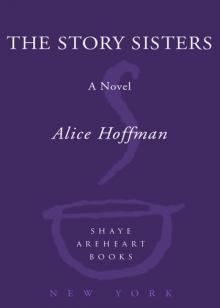 The Story Sisters
The Story Sisters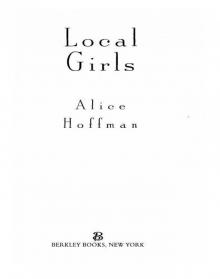 Local Girls
Local Girls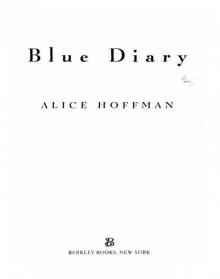 Blue Diary
Blue Diary The River King
The River King Here on Earth
Here on Earth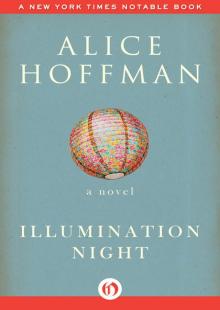 Illumination Night: A Novel
Illumination Night: A Novel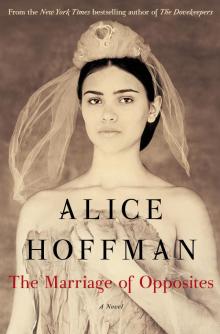 The Marriage of Opposites
The Marriage of Opposites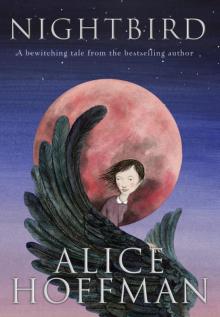 Nightbird
Nightbird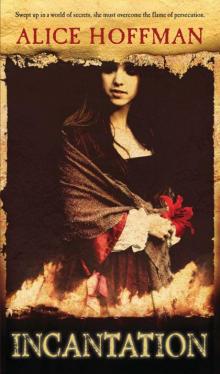 Incantation
Incantation Skylight Confessions
Skylight Confessions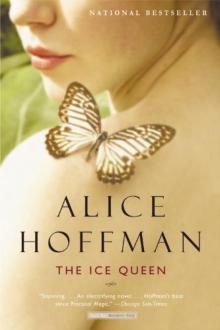 The Ice Queen
The Ice Queen Second Nature
Second Nature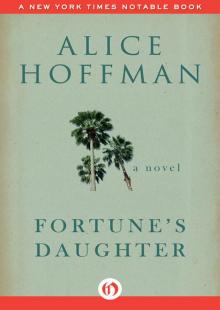 Fortune's Daughter: A Novel
Fortune's Daughter: A Novel Seventh Heaven
Seventh Heaven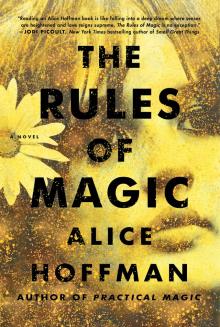 The Rules of Magic
The Rules of Magic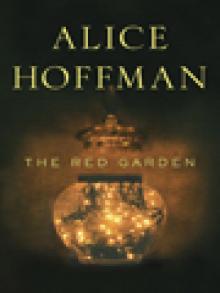 The Red Garden
The Red Garden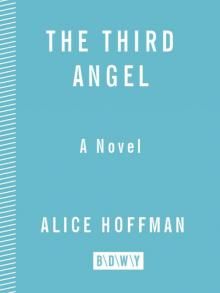 The Third Angel
The Third Angel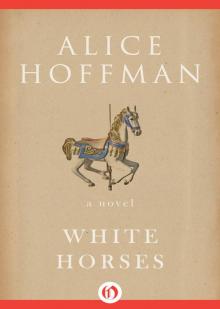 White Horses
White Horses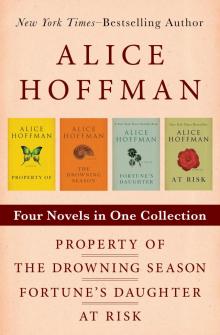 Property of / the Drowning Season / Fortune's Daughter / at Risk
Property of / the Drowning Season / Fortune's Daughter / at Risk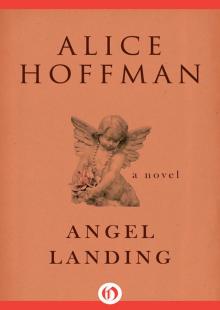 Angel Landing
Angel Landing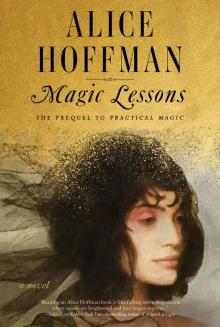 Magic Lessons
Magic Lessons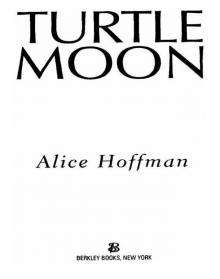 Turtle Moon
Turtle Moon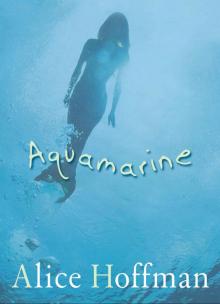 Aquamarine
Aquamarine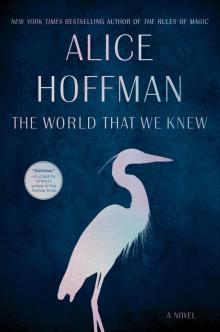 The World That We Knew
The World That We Knew Faithful
Faithful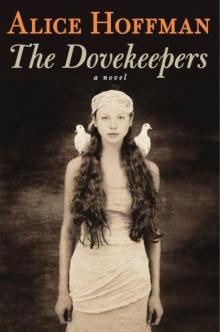 The Dovekeepers
The Dovekeepers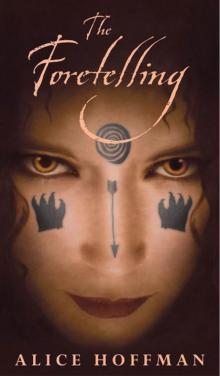 The Foretelling
The Foretelling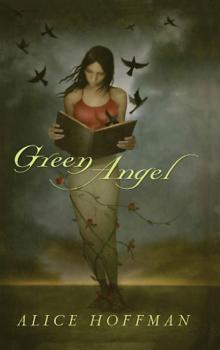 Green Angel
Green Angel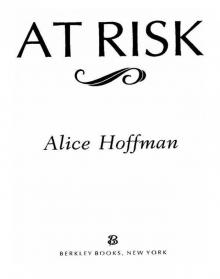 At Risk
At Risk Green Heart
Green Heart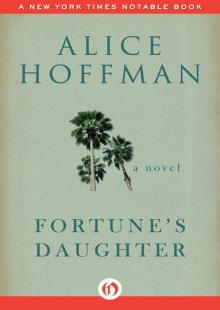 Fortune's Daughter
Fortune's Daughter Faerie Knitting
Faerie Knitting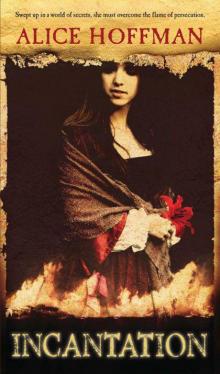 Incantation (v5)
Incantation (v5) Green Witch
Green Witch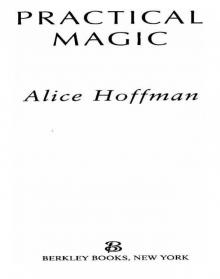 Practical Magic
Practical Magic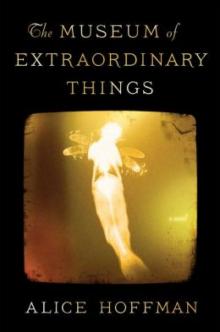 The Museum of Extraordinary Things
The Museum of Extraordinary Things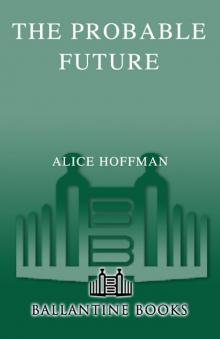 The Probable Future
The Probable Future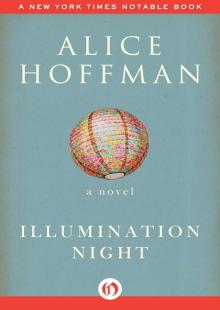 Illumination Night
Illumination Night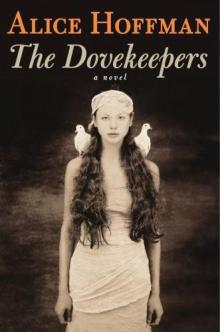 The Dovekeepers: A Novel
The Dovekeepers: A Novel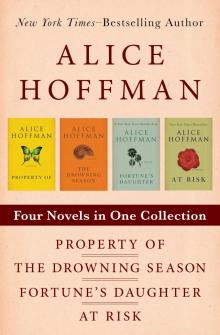 Property Of, the Drowning Season, Fortune's Daughter, and At Risk
Property Of, the Drowning Season, Fortune's Daughter, and At Risk